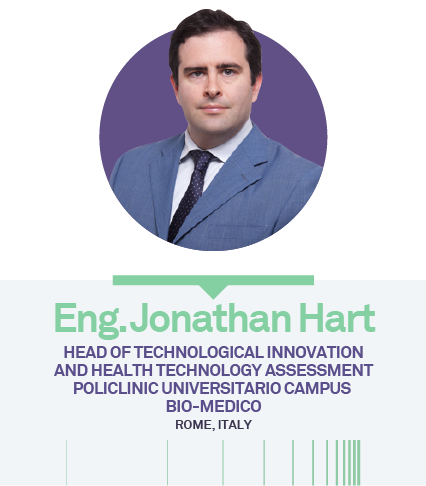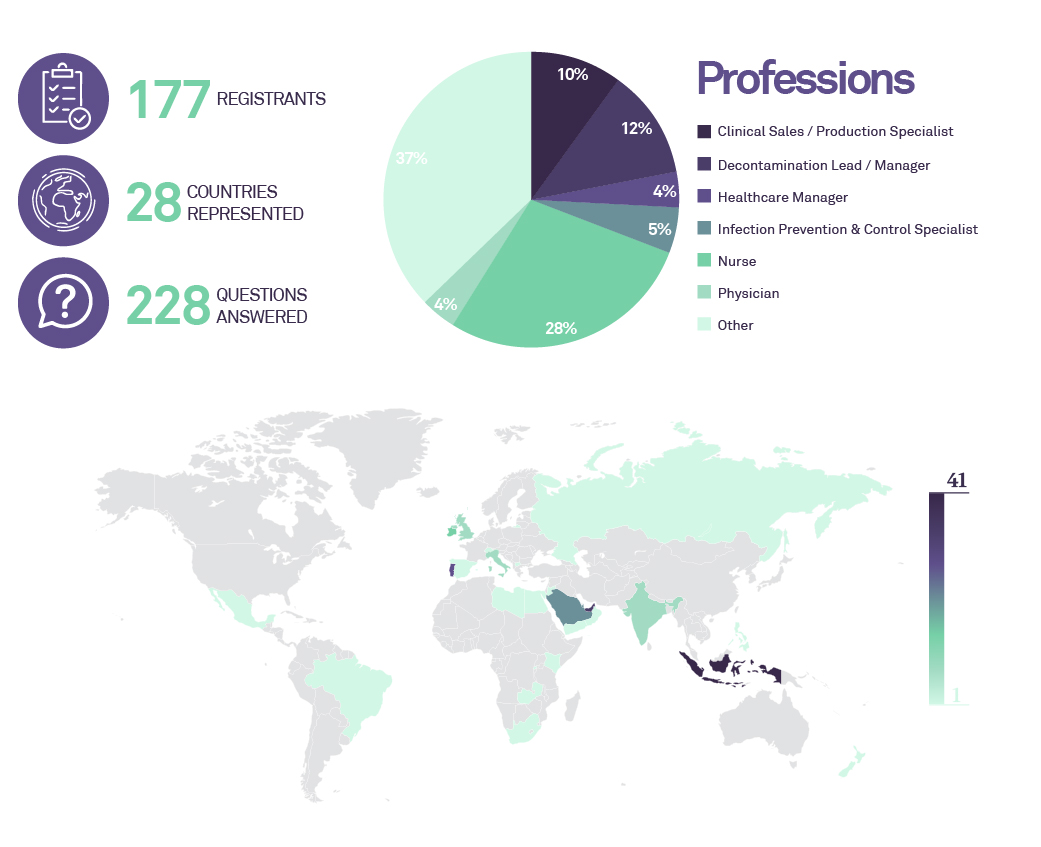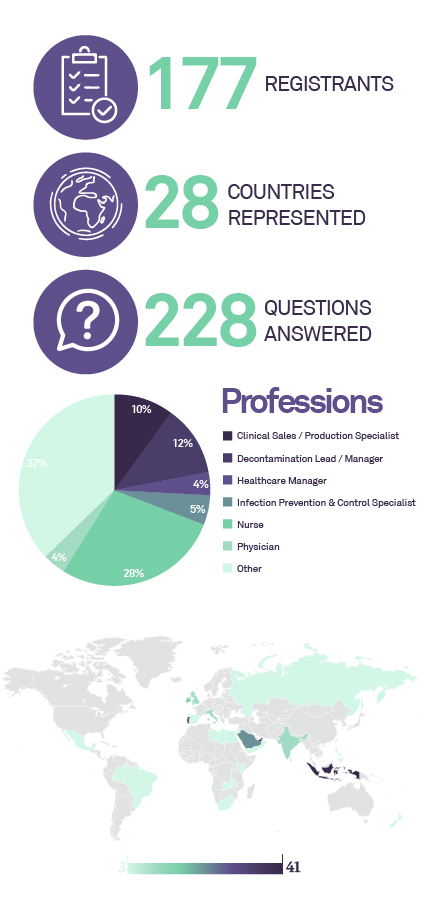During the fourth webinar, Eng. Jonathan Hart will explain how Health Technology Assessment (HTA) can play an important role in managing reprocessing efficiency.

Health technology assessment is a systematic and evidence-based methodology that considers the multiple dimensions (safety, effectiveness, economic and organizational aspects, as well as social, ethical, and legal implications) of healthcare technologies (equipment, drugs, devices, procedures). This means that HTA can be applied to the MD reprocessing cycle as a tool for improvement by measuring how changes in the process or novel methods compare to the current practice.
Efficiency is achieved by maximizing the output of a process given the inputs. The multiple system inputs can be represented as measurable variables relative to the hospital’s productive assets and procedures; the same multidimensional elements are taken into account by the comprehensive HTA approach which is therefore useful in investigating reprocessing efficiency.
The technological evolution of medical devices poses a challenge to the reprocessing cycle: novel and more sophisticated medical devices are also more delicate and require procedures that are more complex. Therefore, in assessing the introduction of a new device, it is important to consider implications in terms of training, staffing, equipment, and time needed for reprocessing.
Efficiency in reprocessing is relative to a number of factors (ranging from time to energy to materials employed) each one of which is determined by the combination of all the operational elements involved.
In order to meet performance requirements equipment must be kept in an efficient state and running condition at all times; this is achieved through the management of the machines which involves the selection, upgrading, use, maintenance, and replacement of all the elements employed (decontaminators, washers/disinfectors, steam and hydrogen peroxide sterilizers, heat sealers, etc.). Productivity and efficiency of the cycle can be tracked and therefore improved, by measuring the process rate and operating time of the equipment.
Furthermore, the reprocessing cycle must be designed according to the service required (scheduled procedures, operating rooms, outpatient clinics, wards, etc.) while taking into account the available assets (staffing, equipment, instruments, etc.).
Contingent conditions (budget constraints, energy cost increase, material shortages) determine constant demand on process (and reprocessing) efficiency. The industrial advances in technology, such as automation and artificial intelligence, applied to MD reprocessing can be useful tools in achieving efficiency goals. Monitoring systems can provide automated data and traceability collection and analysis while systems with AI can identify instruments and guide operators through kit assembly reducing complexity and human error while saving time.
This is the fourth webinar dedicated to “Health Technology Assessment role on MD Reprocessing efficiency”, presented by ASP Continuous Education.
30th NOVEMBER 2023


- Degrees in Electronic Engineering (BSC) and Biomedical Engineering (MSC)
- Senior Hospital Management Staff (Medical Director’s Office)
- Purchasing of Medical Equipment, Medical Devices, and Surgical Instruments
- Budgeting and Cost Tracing
- Healthcare Operations and Operating Room Management
- Clinical Performance and Outcome Indicators
- Hospital Layout and Workflow Design


MESSAGES
- HTA is a valuable tool in addressing MD reprocessing
- Reprocessing efficiency depends on effective management of productive assets (staffing, planning, equipment, instruments)
- Productive efficiency: increasing the output by reducing costs, materials, and time.
- Economic efficiency: retaining inventory value
- Technological advances: can help in providing data and reducing human error


